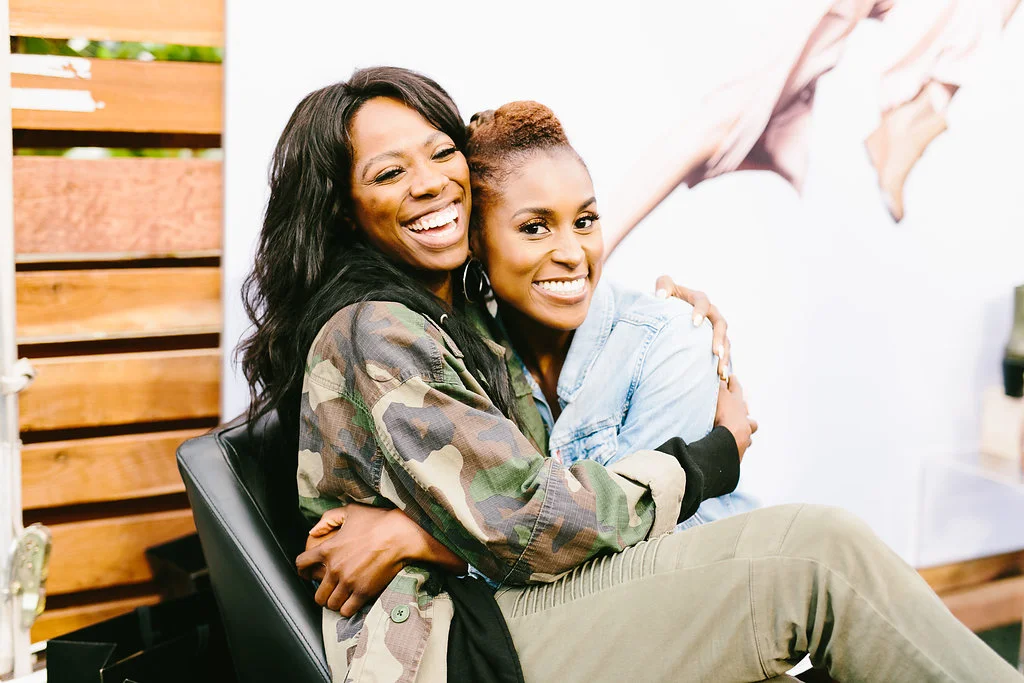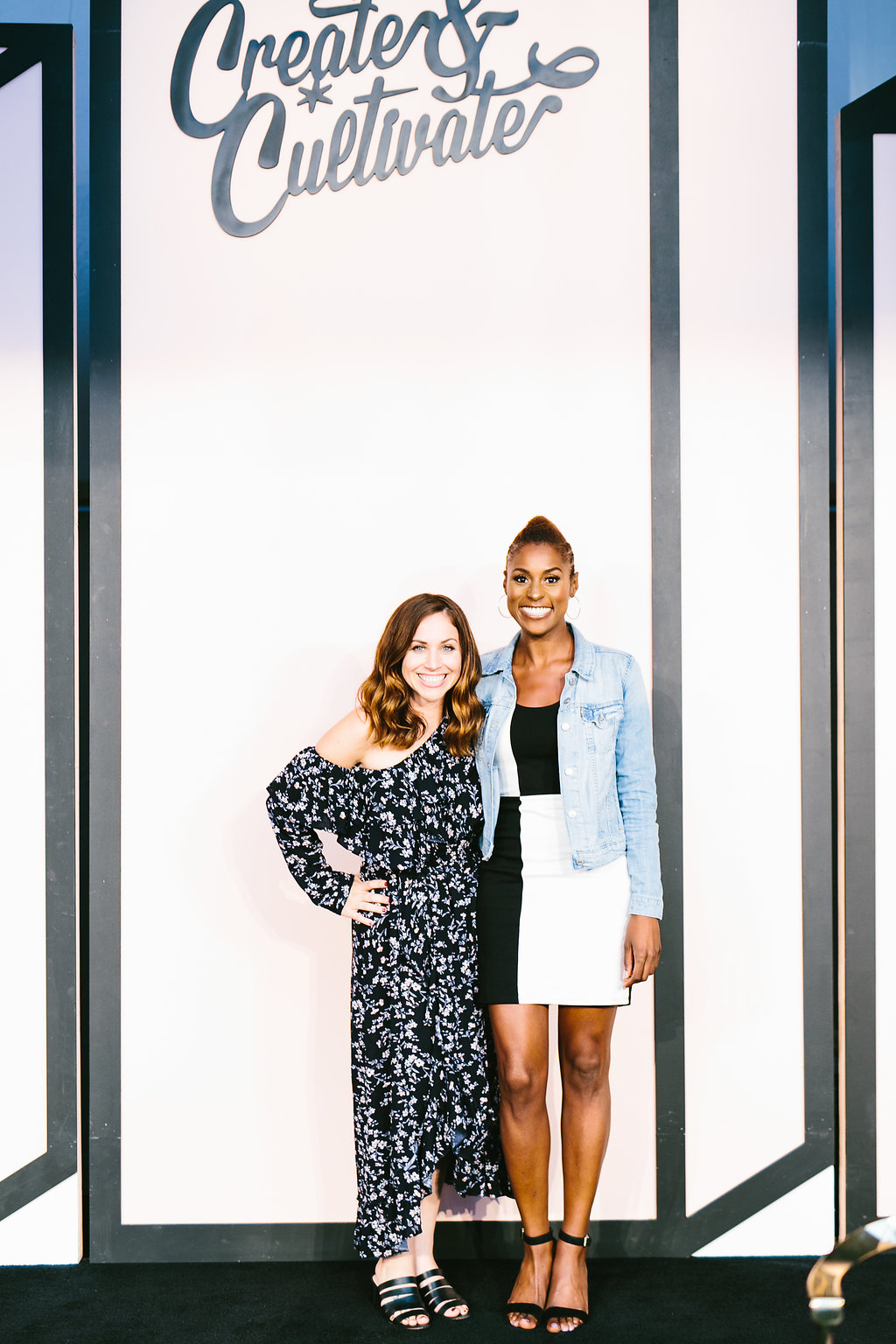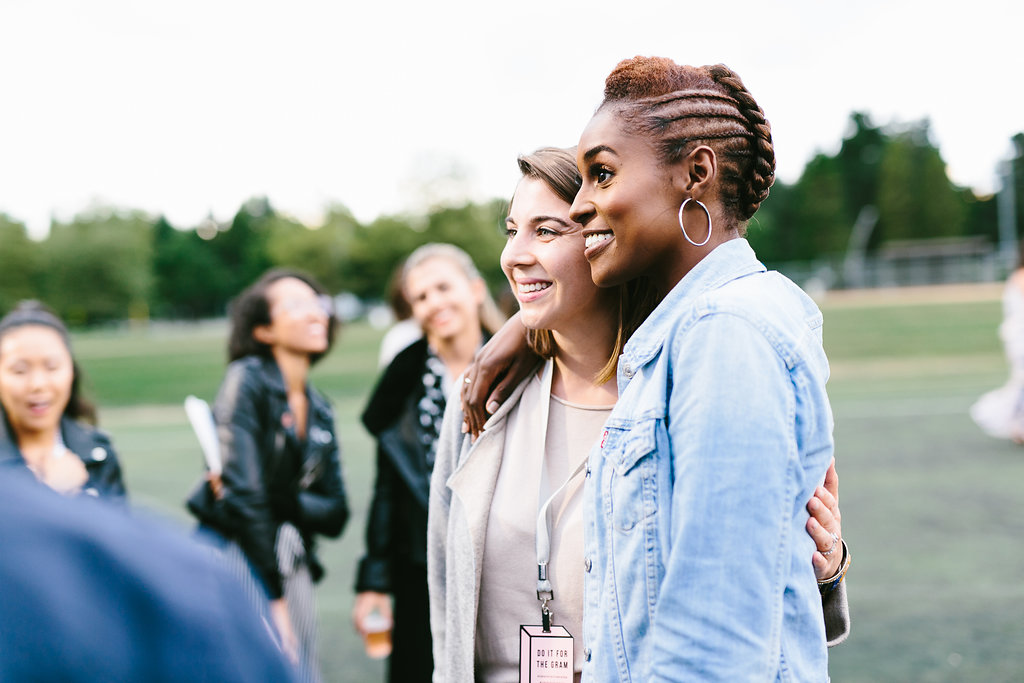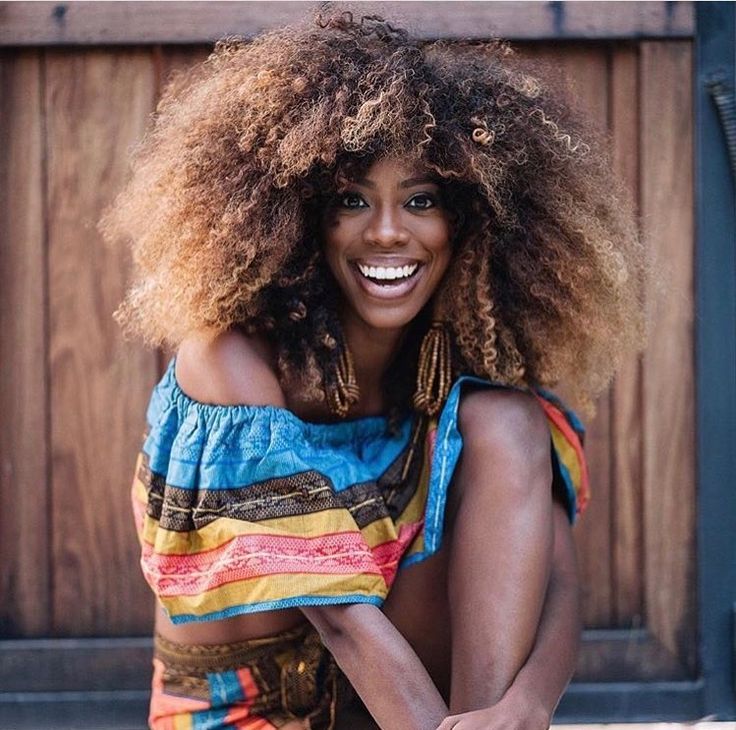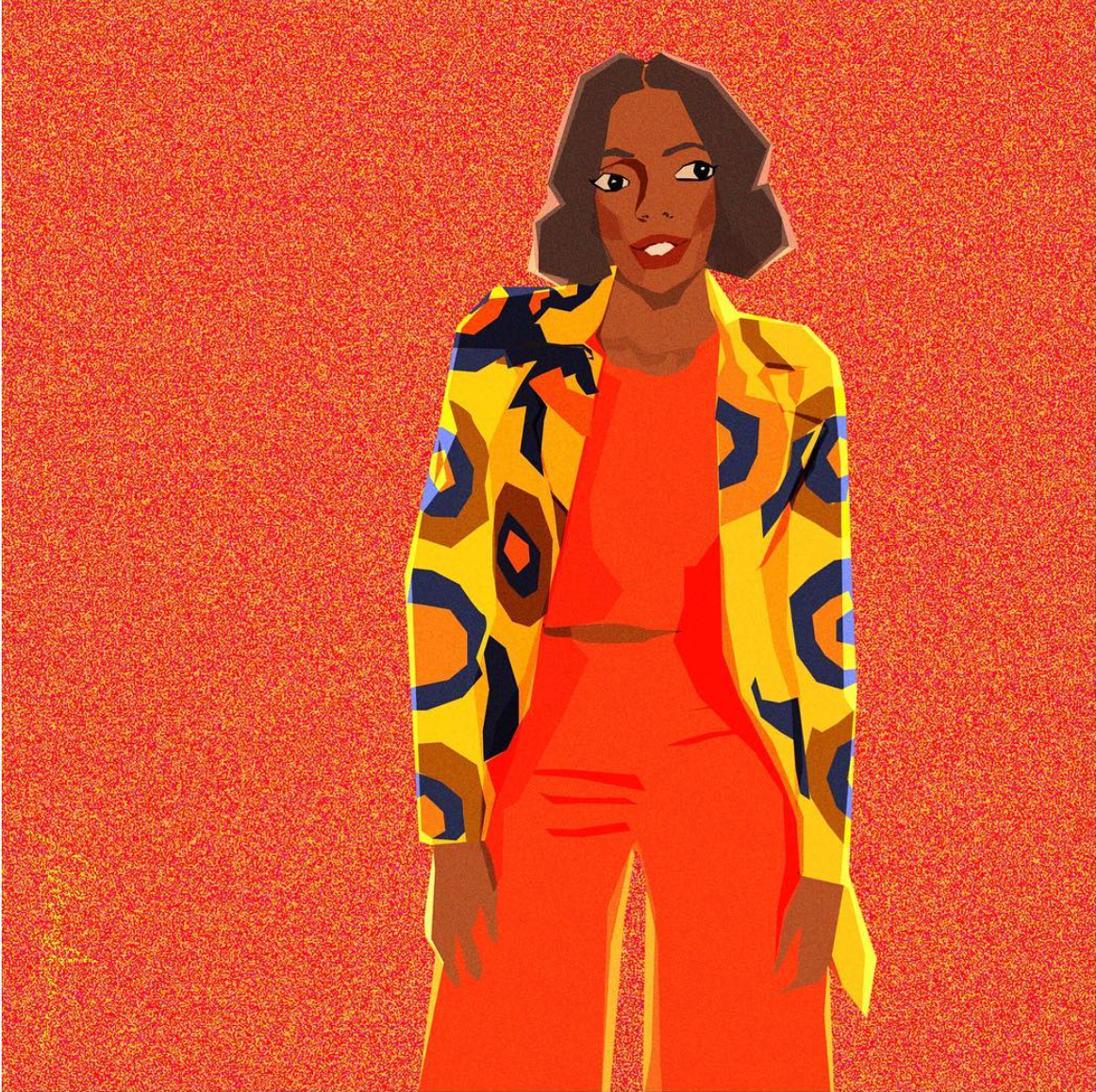Issa Rae on Failure, The Old Hollywood Boys Club & Throwing Chairs
When Issa Rae joined us on stage at Create & Cultivate Seattle as keynote conversation with CEO founder Jaclyn Johnson there was a fair amount of fan-girling that went on. Which, fair. The self-made YouTube star has made moves since Awkward Black Girl, creating and starring in HBO's Insecure, as well as landing in Time Magazine's "Firsts" issue, credited as the "First black woman to create and star in a premium cable series."
Here's what she shared with the audience.
On the old boys club:
"You’re constantly getting excuses from higher-ups that they can’t find people.. But they’re not trying hard enough.
Sometimes you have to take a risk on people that have no experience, so they can work. There is an old boys club at the end of the day. They’re recycling people and they are risk-averse. But when you have black and Latino people supporting a black show, the results are clear and it feels authentic. For us it was making sure that we’re doing our part to give other people the spotlight."
On your ‘one shot':
"During Awkward Black Girl... I was producing that out of pocket, and my pockets were empty. That was hard. I produced it with 25 dollars. We set a Kickstarter goal of 30k and ended up raising 60k. And then Pharrell [Williams] contacted us in the middle of our season and asked if he could fund the second season. That changed the game from there."
Shonda Rhimes and co ended up reaching out to Issa.
"I was producing Awkward Black Girl out of pocket. And my pockets were empty."
Tweet this.
"I pitched them a show called I Hate LA Dudes. It was something true to my heart and true to their hearts too. I developed that with them. I felt like it was my one shot. I was extremely eager to please. Shonda was great at hand-holding but where I fell short was navigating network notes. When the studio and network would give notes I was a 'yes woman' and I lost what I was trying to say in the process. At the end of the day they want you to funnel their notes through your voice. I didn’t get that at the time. They ended up passing on the series. I thought that was my one shot. So when HBO called and I knew that I should never dilute my voice again."
On failure:
"I can’t go a day without failing. I think where I thrive is knowing I’m not gonna make that mistake the same way again."
On bringing up other people:
"Too often we try to find people that are established or go the star route and networks encourage that. But I’d been following Yvonne’s [Orji] career for such a long time, just via Facebook. She was one of the random people I had friended post election when she had posted a video trying to claim Obama as a family member after the election. I thought it was the funniest shit ever. I just friended her. When we got picked up I hit her up and said, ‘Hey will you audition for this?’
The web is where you can be the most free. It’s your pure unfiltered voice. And it’s where you can highlight other content creators. Which is what Issa Rae Productions is about. It’s about building a pipeline to get people into television and film. It’s been super exciting as a genuine fan of dope artists.
Everyone on the Insecure team is all about that. Elevating other content creators. That’s what it’s going to take to shift the industry and shift the crazy excuses as to why there aren’t relatable shows of color."
On first mini-viral moments:
"Me and my girlfriends were sitting around drinking Moscato one night. Because we heard Lil' Kim talk about it in a song. And we could afford it. We had a freestyle session where I thought, I need to record this. We are killing it. We weren’t. I used Windows Movie Maker and turned it into a music video. It spread around our campus."
On breaking into the industry:
"At the same time [as the viral videos] I was trying to break into the industry traditionally. I came to LA to try and sell a spec script I wrote with a partner. I was told by executives that there was no audience for the kind of work we we’re trying to do. I had a lightbulb moment when I thought I am such an avid user of Facebook, it would be so cool to do a mocumentary about what it’s like to be black at Stanford and just upload it. And did it. It started spreading to other schools. For me that was an epiphany that I had direct access to an audience. But I graduated and didn’t do it again until about two years later. Awkward Black Girl was my third web series. It blew up from there."
On being ‘Insecure’
For Awkward Black Girl I was 100% nervous. I had never put my own face out there. I wanted another friend to star in it, but by the time I actually went through with it she was like, ‘Girl I’m in law school.’ I knew I was running out of time. And I knew the character and that I could play it. That took a lot of pumping up. I know how ruthless people are, but I had to get over it. I had my best friend come over and showed her the first edit and watched her genuine feedback and laughter. Then I closed my eyes, uploaded it, and went to sleep. By the time I woke up, it had spread beyond my network, which I thought was just incredible."
"I can’t go a day without failing."
Tweet this.
On representation:
"I was a fan of television shows that had a specific type of humor. But I never saw people of color representing that humor. Sometimes they were being laughed at or the butt of the joke, but they weren’t cracking the jokes."
At the time Issa had a film blog where she would vent her frustrations.
"On the blog I would talk about what I wanted to see. And I would talk shit a lot. And one commenter was like, ‘Bitch you talk a lot of shit, why don’t you do it?’ And I was like, 'Oh maybe I can.' So I really created Awkward Black Girl so I could continue to talk shit."
On the start of her career:
"There is someone who should have equity and is the reason I put out the show. Commenter ShyWeb18 is responsible for my entire career. Shoutout to her."
On female friendships:
"When I was in in college I loved watched the reality shows for the drama and the ignorance and the ridiculousness of it. But then I thought this is all we have depicting black female friends. We’re constantly battling each other, we’re conniving. We’re throwing chairs and wine bottles at each other. And I’ve never thrown chairs in my life.. at my friends. We wouldn’t be friends after that. I wanted to depict the real friendships that I knew. Yvonne’s character Molly is based off of one of my best friends.
I love women. Some of my best friends are women. There’s just a comfort and a shorthand and a support system. For me it comes from being around dope active women. There’s a narrative that we don’t support each other, that we’re catty, that we tear each other down. That’s never been my experience. It’s so rewarding to grow with so many different women. "
Photo credit: Smith House Photography
Arianna Schioldager is editor-in-chief at Create & Cultivate. You can find her @ariannawrotethis.
MORE FROM OUR BLOG
Why "Insecure" Star Feels Good as a Black Woman in Hollywood
The future of TV is fierce AF.
R: Yvonne Orji by graphic illustrator Monica Ahanonu
When Insecure actress Yvonne Orji says, "I feel good as a woman in Hollywood. I feel good as a black woman in Hollywood," you can tell she means it. And she doesn't think her job would be easier if she were a man. "No, because I like being a woman. I think there is beauty and benefit to being a woman. I like being able to go into male-dominated spaces and blow people’s minds away."
That’s not to say she is blind to the discrepancy in Hollywood. Race issues. Age issues. Wage issues. There’s no way to avoid them.
"I like being able to go into male-dominated spaces and blow people’s minds away."
Tweet this.
Her journey through Hollywood certainly hasn't been without sexist moments. Having first made a name for herself on the stand-up circuit, Orji says there was always a moment where the announcer would prep the crowd. "Are you ready for a woman? are you ready for a woman?" they'd ask. These are the micro-aggressions that continuously diminish women at work. "They never do that for man," she says and it's no laughing matter. "Apparently," says Orji, "there are rules as a female standup comic. You can’t be pretty, skinny, and funny. Pick one. You can’t be all these things. To be funny, you have to be overweight, and you have to be dirty with your jokes." That's not the case for Orji. "I do clean comedy and just really want to make people laugh in a positive way. Yes, I know how to work out and put on makeup. Why are there so many fractions in order to make people laugh as a woman? You don’t hear this from guys. You can just be funny."
But she's never let those intros deter her or hold her back. "I stand my ground and stand my own. This is me. I am not backing down. You may not know me now, but by the time I finish my set, you’re going to think I’m incredibly funny."
These are also stereotypes she’s been working to break with Insecure, which is about to release its highly-anticipated second season on HB0. Orji plays BFF Molly (a high-powered DTLA attorney) to Issa Rae's character, Issa. The show has been properly lauded for being an important show with great roles with great roles for women as well as one that tackles social and race issues while avoiding cliches. "Molly can be insecure. Everyone can be insecure. And that happens in life. You have one thing set and then you don't. You’re dating someone, but then you want a new job. You have the job, but you don’t have the relationship. There are always things that aren't working."
Orji and Rae on Insecure.
It's this kind of material, and the specifically multi-faceted role she's currently playing, that makes Orji love being a woman in this town. "Especially now," she says. "With the type of content we put out there and the content creators that are allowed to have their voices expressed." She brings up Living Single. “There were shows that were popular in the ‘90s that featured strong black characters, and then that fell off for a minute. There was a gap in programming." But shows like Living Single allowed for the progress and next iteration of strong black female-led comedies. i.e. you can be a high-profile black, female attorney who also doesn't have it all together. It's the true Millennial experience, where women, and here specifically black women, are more than one thing.
When asked about the latest success of Wonder Woman and Gal Gadot, Orji quotes an article that talks about how true success will be when a female-led movie is allowed to fail and Hollywood will still make another. “Men have been failing for years. And they are still given development deals and big deals with studios. There is so much pressure on women. ‘Oh if this fails, Hollywood will NEVER make another movie like this. It HAS to be great.” It’s a dangerous setup. For Orji, “Divide and conquer doesn’t work here,” she says. Not if Hollywood wants to make progress. "Women helping other women is the way." And it's why she explains, "It’s so important for Issa and I and why we work really hard at it. It’s also more comfortable to look around a set and see a female sound tech, a female executive producer." She brings up award-winning director extraordinaire Ava duVernay, a champion for diversity in Hollywood. “It’s the same thing with directors like Ava. When people say, 'I don’t know another black actress.' Ava will say, 'Well, how about her?'” We bring up the all-female set of Zoe Lister-Jones’ new movie Bandaid. “Ooh, checkmate, Hollywood,” she says. Except Orji isn’t sitting around waiting for Hollywood to make its move. She’s making her own. Taking her future into her own hands— a space where she is clearly comfortable. She's been tied down with ADR for Insecure Season 2 (which returns Sunday, July 23rd of HBO) and she's also hard at work on her own show, First Gen, which draws from her stand-up and her experience as a Nigerian-American and the daughter of two immigrants.
"I came to Hollywood as an intern in the writer’s room and I didn't really know what that meant, but I saw how much power exists in there. With First Gen, maybe I didn’t know structure, but I knew people. And you have to be willing to take the risk. At least for me. It was up to me to take this into my own hands." Thats’s the kind of go-getter she is. And that part is so crucial.
"I stand my ground and do my thing as me. I can go toe-to-toe with the next guy. There is strength and power in being a woman: we are smart, we are creative, and we are compassionate. Are there great women out there doing amazing things, with a guy coming in not doing anything extravagant and everyone thinks what he’s doing is amazing, but yet she has to prove herself? Yes, that does still exist and it does still suck, but not to the point where I want to be something other than an African immigrant black woman. No, no, no! I’ll take my portion, I like it."
She also notes there has to be more diversity because the women at the forefront of society are more diverse. “Who is going to play the First Lady (Michelle Obama), who is going to play Oprah?” she asks. Good questions. We have a couple of answers and a strong feeling she'll be in the running.

